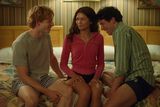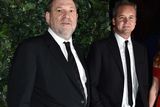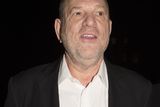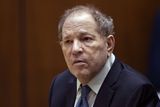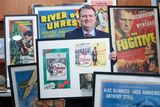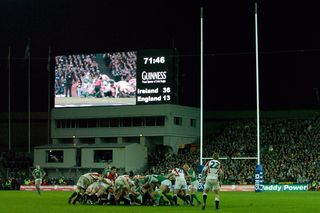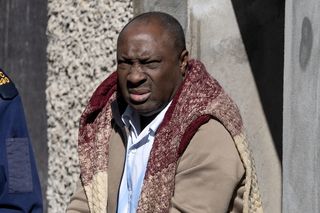Men in tights: Hollywood's long love affair with superheroes
This year's summer blockbuster season will be kick-started with a bang next week when Avengers: Age of Ultron lumbers into your local multiplex. A $200m, all-action extravaganza, it's a sequel to the massively successful Disney/Marvel 2012 film Avengers Assemble, as well as to previous Marvel films like Iron Man. Its predecessor grossed $1.5bn at the box office, and Avengers: Age of Ultron is almost certain to be the biggest film of 2015 until Star Wars arrives in December.
Age of Ultron is the eleventh instalment in an ever-expanding Marvel franchise that has also crossed over into television. The success of the Marvel films demonstrates the extraordinary modern thirst for superhero movies: by my count there've been at least 50 of them in the last decade or so, and over the next few years we're due to be bombarded by a whole lot more. Another 30 will be released by Disney, Warners, Fox and Sony between now and 2019, and while critics are growing tired of them, the pubic don't appear to be.
This rampant enthusiasm for capes and costumes can partly be explained by the predominance of teenage boys among movie-goers, but also by the very high quality of the superhero films being produced. Film-makers like Christopher Nolan, Bryan Singer and Joss Whedon have elevated the genre to new heights with complex storylines, astonishing production values and plenty of knowing wit.
It could, for instance, be argued that the Iron Man films are a lot funnier than most recent Hollywood comedies, and that Dark Knight has more dramatic heft than many supposedly serious dramas.
It's a strange turn of events, all in all, because although the concept of superhero films began as early as the 1930s, they were considered childish and silly until relatively recently.
Many of the most famous superheroes, like Superman, Captain America and Batman, began their lives as characters in dime comic books in the 1930s. Then, as now, Hollywood studios were permanently on the hunt for ready-made stories, and Batman, Superman, The Phantom, Captain Marvel and Captain America were all adapted for the screen in the 1940s. But they appeared mainly in episodic adventure serials aimed at small boys, and quickly drifted out of fashion.
The screen superhero was fitfully revived in the mid-1960s when Batman was turned into a popular TV series starring Adam West. But the tone of that show was camp and jokey, and a spin-off movie was hilarious but risible, and didn't make much money.
The film that changed all that, and single-handedly created the modern superhero movie, was Richard Donner's Superman.
The film's producers, Ilya & Alexander Salkind and Pierre Spengler, considered everyone from Clint Eastwood and Muhammad Ali to Robert Redford, Al Pacino and even Dustin Hoffman for the lead role before settling on a lanky young actor called Christopher Reeve. They wanted him to wear a muscle suit but Reeve refused, and put on 30 pounds in the gym instead.
In a time before Cgi, Superman's effects team were driven to ingenious extremes to create realistic-looking flying sequences. Animation, remote-controlled miniature Supermen, and crash-test dummies fired from cannons were used, along with suspension wires and blue screen. Reeve did a lot of the dangerous work himself, often hanging suspended 50 feet in the air.
Despite all this hard work, Reeve was paid just $250,000 for Superman and Superman II, while Marlon Brando was given an obscene $3.7m for his meandering, 10-minute appearance in the first film, and Gene Hackman earned $2m for portraying Superman's grandiose villain, Lex Luthor.
Mind you, Hackman did so extremely well, and helped establish the superhero movie trope of the humorously megalomaniacal baddie. Donner fell out spectacularly with his producers during a particularly fractious shoot, but somehow a wonderful and ground-breaking fantasy film emerged from the wreckage. Superman grossed more than $300m worldwide and established the template for all superhero movies to come. Curiously, however, other studios and producers were slow to follow its example.
Reeve starred in three Superman sequels of varying quality, but by the mid-1980s the franchise had exhausted itself, and so, it seemed, had the public appetite for superheroes.
Tim Burton and Warner Brothers, however, thought otherwise: since the late 1970s the studio had been tinkering with plans to turn the Batman brand into a major motion picture. And while hardcore fans were displeased by the appointment of Burton as director, and worried his surreal style would result in another camp Batman comedy in the style of the 1966 one, they were in for a very pleasant surprise.
Burton's Batman (1989) had a darker, more serious tone than any superhero film to that date, and was inspired by the revisionist 1980s graphic novels The Dark Knight Returns and The Killing Joke. Those stories depicted Batman as a grizzled vigilante whose crime-fighting methods were sometimes questionable, and The Joker as a deranged sociopath.
Jack Nicholson would bring that cackling villain memorably to life in Burton's film with a bold, cartoonish performance that somewhat overshadowed Michael Keaton's edgy, complex Batman.
It was a fine, stylish action-fantasy, and Burton was on hand to direct the very solid 1992 sequel, Batman Returns. But the franchise was debased by two inept Joel Schumacher sequels, Batman Forever and Batman and Robin, and though there were a few other superhero films in the 1990s, like The Shadow (1994), The Crow (1994) and The Phantom (1996), it was in the 2000s that the genre really exploded into the popular consciousness.
In 2000, Bryan Singer and 20th Century Fox scored a surprise hit with X-Men, a lavish adaptation of the Marvel comic that used recent innovations in special effects to bring the superhero team memorably to life. Singer also found echoes of racial prejudice in the mutants' storyline, and used this and humour to make X-Men almost as accessible to adults as teenagers, a trick that would be used time and again during the ensuing decade.
X-Men became a hugely successful franchise, and so did Spider-Man, another Marvel-inspired adventure that kicked off in 2002 with Sam Raimi's massively successful Spider-Man, a smart, slick blockbuster full of bravura Cgi action sequences which grossed a staggering $821m worldwide.
It inspired two sequels, and in 2012 Sony managed the remarkable feat of relaunching the franchise with The Amazing Spider-Man, which made almost as much money as Raimi's original film in spite of the fact that it told exactly the same story.
Warner Brothers relaunched the Batman series in 2005 with Christopher Nolan's Batman Begins, a grand and gloomy reboot which brought new levels of complexity and nuance to the superhero genre. It starred Christian Bale and told the story of how the orphaned millionaire Bruce Wayne became Batman. Nolan's imagery and cinematography were bewilderingly rich, and he followed Batman Begins with two fabulously gothic sequels, one of which, The Dark Knight, may just be the best superhero film ever made (see panel).
Superman returned in 2006, in a Bryan Singer revival that was generally considered slow, sanctimonious and over-laden with references to the risen Christ, and more successfully in a 2013 film (Man of Steel) that essentially copied the template of Richard Donner's 1978 original. But the real fun started when Marvel Studios began assembling their 'Cinematic Universe' of superheroes.
READ:
John Favreau's Iron Man (2008) brought humour to the fore, and took the considerable risk of casting the then seriously out of favour Robert Downey Jr as billionaire inventor Tony Stark. It was a chancy but inspired move, as Downey was astonishingly good as Stark, a dissolute and showy genius who has a Damascus experience and dedicates his life to fighting crime.
The beautifully designed flying metal suit, slick jokes and slicker effects were set to heavy metal tracks by the likes of AC/DC and Black Sabbath to create a winning box office formula. In association first with Paramount, and more recently with Disney, Marvel have made hay by rapidly introducing other characters including Hulk, Thor and Captain America in hugely successful solo vehicles before joining their stories in Avengers Assemble and now Avengers: Age of Ultron.
Their appeal is obvious: simple stories of good and evil told with verve, humour and stunning visual effects. And the avalanche of superhero movies is set to continue: in the next 12 months we'll be seeing Ant-Man, The Fantastic Four, Batman V Superman, Guardians of the Galaxy 2, X-Men Apocalypse and Wonder Woman.
The studios, of course, love the superhero craze, because although the films cost a lot to make, pouring dollars into a recognisable comic book hero is a lot less risky than backing something new. The only problem is that this ongoing glut of formulaic action fantasies exists at the expense of the serious original dramatic movies that might have been made in their stead.
The Citizen Kane of superhero movies
Breath-taking is about the only way to describe this epic superhero drama from writer/director Christopher Nolan. A sequel to 2005's Batman Begins, The Dark Knight took that film's elegantly grim style and expanded it into something truly spectacular.
Christian Bale starred as billionaire playboy Bruce Wayne and his nocturnal crime-fighting alter ego, who here faces his demonic nemesis, The Joker. He descends on Gotham City with a vengeance, happy to blow up hospitals and slaughter the innocent in a bid to provoke the Batman into a decisive confrontation.
Only the bravest of actors would have dared take on a role so synonymous with Jack Nicholson, but the late Heath Ledger went off and completely reinvented it.
There's nothing all that funny about his Joker, a terrifying, relentless and utterly demented psychopath whose psychosis seems disturbingly real.
He dominates this film with a measured, compelling and oddly graceful performance, and Bale is very good as the dark and troubled Bruce Wayne.
Join the Irish Independent WhatsApp channel
Stay up to date with all the latest news



